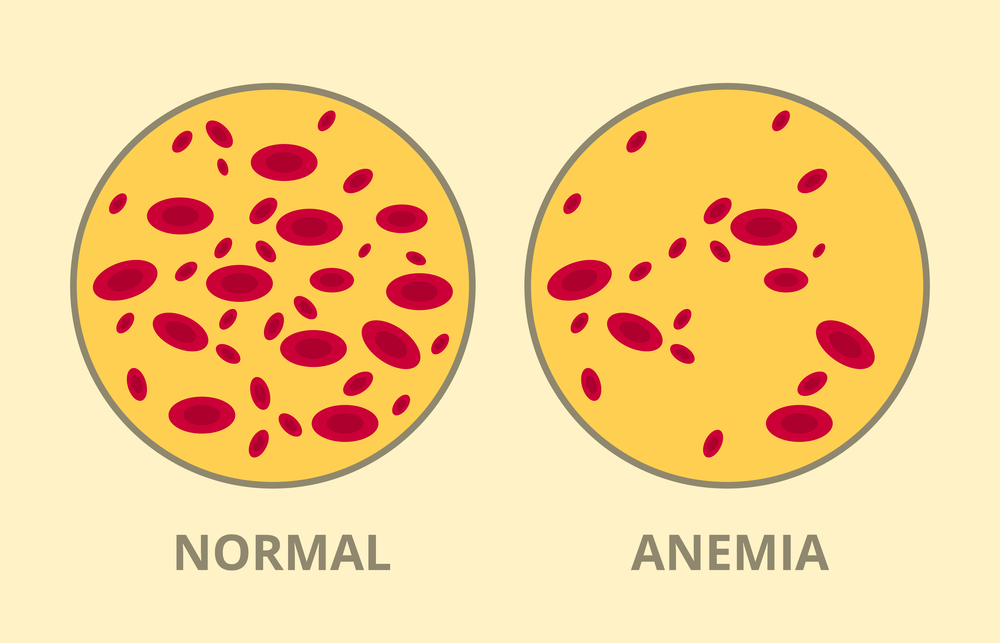The body needs iron to transport oxygen to the cells. During pregnancy, nutrients can sometimes run out. How can you prevent iron deficiency anemia…
Pregnancy demands a lot from the body: in addition to its normal functions, it has to provide for the unborn baby. And it grows constantly and needs numerous nutrients. During pregnancy, red blood cells, among other things, are produced to supply mother and child with sufficient oxygen. Pregnant women therefore need more iron, for example, which is necessary for the formation of red blood cells. Because of the increased requirement, the risk of developing an iron deficiency increases for expectant mothers.
Control of the blood values
At the first preventive appointment, the gynaecologist checks the so-called Hb value in the blood of the pregnant woman. Hb stands for haemoglobin, which is our red blood pigment. It is found in the red blood cells, binds oxygen and ensures that it reaches all the cells in the body via the bloodstream and also reaches the unborn baby via the placenta. For the haemoglobin to be able to do its job, it needs iron. If pregnant women do not consume the required amount of iron, the baby’s supply gradually depletes its iron stores. If there is an iron deficiency, at some point not enough haemoglobin can be produced. As a result, anaemia can result from iron deficiency. But don’t worry: during pregnancy, the doctor will regularly check the haemoglobin (Hb) level. If the values are too low, he will take appropriate measures.
Symptoms of iron deficiency anemia
If iron deficiency anaemia is present, this can manifest itself in symptoms such as paleness, concentration problems, sometimes palpitations and headaches. The gynecologist treats the iron deficiency by prescribing iron supplements. However, these also have side effects: The bowel movements can turn dark. Some patients get stomach ache, nausea or constipation from the tablets. If pregnant women notice side effects, they should ask their doctor for advice. He or she may be able to give you advice on how to counteract them or choose another medicine for you. To avoid an overdose of iron, pregnant women should only take iron supplements after consulting their doctor.
Correct nutrition prevents iron deficiency
To prevent iron deficiency anaemia from occurring in the first place, you should ensure that you eat a balanced diet throughout your pregnancy: The German Society for Nutrition recommends that pregnant women consume 30 mg of iron per day. The absorption of iron from plant foods can be hindered or promoted by certain factors. Drink a glass of orange juice with your meals, for example. The vitamin C contained in it helps the body to better absorb the iron. Milk, black tea or coffee have the opposite effect – they reduce the absorption. You should therefore keep your distance between drinking such drinks and taking iron tablets.
These foods contain iron
- Red meat (because of the possible danger of infection, please always fry well)
- Legumes, for example green peas
- Wholemeal products
- Vegetables like spinach, beetroot, kale, zucchini…
- Lettuce and herbs like lamb’s lettuce, chives and watercress

